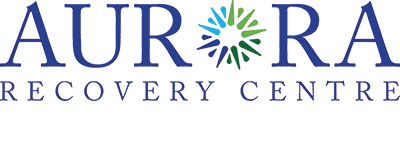Doctors prescribe medications to treat a wide variety of diseases and conditions. Nevertheless, many medications can be addictive, which means they’re not safe for everyone and can lead to serious and even life-threatening problems.
Early identification of prescription drug abuse and early intervention may prevent the problem from turning into an addiction. However, because the medication is prescribed by a trusted professional, you may not suspect prescription drug abuse.
Using prescription drugs improperly – such as taking medication that hasn’t been prescribed to you or taking more than is prescribed to induce euphoria or change your mood – can have dangerous consequences, Health Canada warns.
But even with heightened concerns driving your search for clues, it’s not always easy to detect prescription drug addiction. If you don’t know a person’s prescription, for instance, it may be difficult to know if they’re abusing the medication or following recommended usage guidelines.
To further complicate your concerns, someone can experience side effects – such as a minor rash or severe allergic reaction – even when using their medication correctly, Health Canada notes.
Signs and symptoms of prescription drug abuse also vary by drug. Here are the Mayo Clinic’s listof mostmisused prescription drugs:
- Opioids used to treat pain, such as medicines containing oxycodone (Oxycontin, Percocet) and those containing hydrocodone (Norco)
- Anti-anxiety medicines, sedatives and hypnotics used to treat anxiety and sleep disorders, such as alprazolam (Xanax), diazepam (Valium) and zolpidem (Ambien)
- Stimulants used to treat attention-deficit/hyperactivity disorder (ADHD) and certain sleep disorders, such as methylphenidate (Ritalin, Concerta, others), dextroamphetamine- amphetamine (Adderall XR, Mydayis) and dextroamphetamine (Dexedrine)
Some of the signs of prescription drug abuse include forging, stealing or selling prescriptions; requesting early refills or continually ‘losing’ prescriptions so more prescriptions must be written; and trying to get prescriptions from more than one prescriber, according to the Mayo Clinic.
If you notice a family member or friend is acting differently than before or is having problems in various aspects of their life, they may be struggling with substance use, Health Canada advises.
The following are among the signs it suggests you look for:
- Personality changes
- Isolating themselves from friends and family
- Extreme changes in their behaviour and mood, such as arguing and fighting more with family and friends, especially when someone comments on their drug or alcohol use
- Trouble remembering things or staying alert
- Trouble with concentration, memory and the ability to think and make decisions
- Loss of interest in activities they once enjoyed
Difficulty managing basic parts of their life can include:
- Getting lower grades at school or lower productivity at work
- Missing school or work
- Decreased health
- Unstable finances
- Strained or tense relationships
- Lower self-esteem
Treatment options for prescription drug abuse vary and depend on factors like the type of drug used and the patient’s individual needs, but counselling is typically key. Treatment may include withdrawal management, which is the initial supervised, controlled period of stopping the use of a substance, Health Canada notes.
Given the high risk of relapse and harm, it recommends you transition immediately after withdrawal management services to mental health and substance use services, such as a rehabilitation centre.
Aurora Recovery Centre’s holistic services include detoxification services. During treatment, our counsellors and addiction specialists take the time to help you figure out what factors may have led to your prescription use disorder. We also teach you the skills you need to resist cravings and avoid future abuse of drugs, as well as the steps to take should you experience a relapse.
Overcoming prescription drug abuse can be challenging but the Aurora Recovery Centre team is here to help you on each step of your recovery journey.
